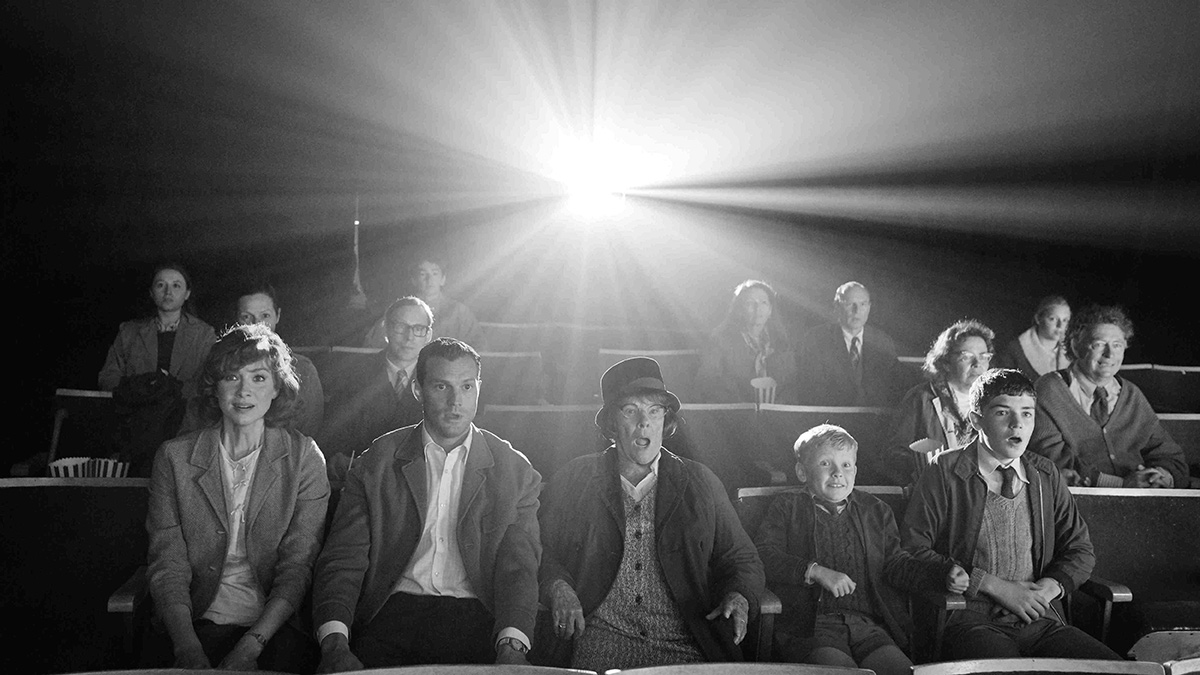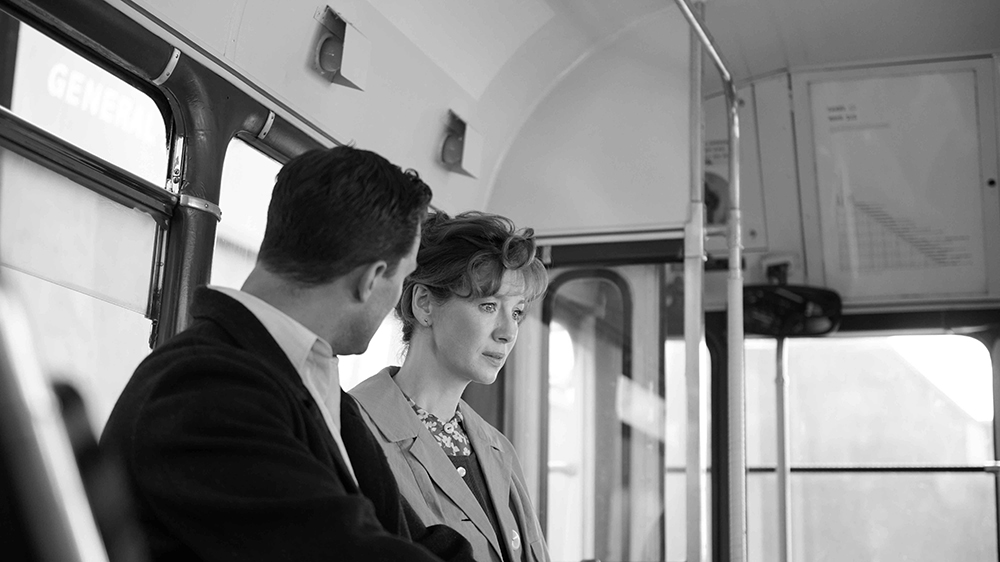
Ⓒ2021 Focus Features, LLC.
Kenneth Branagh's personal work, a fictional reconstruction of his ``Belfast'' autobiography
2022.03.24
The world as seen by a boy: the contrast between reality and the world of movies
The impetus for making this film was the lockdown caused by the coronavirus pandemic. In an interview published in the web magazine Hot Press (February 9, 2022 issue), Branagh made the following comment. "I've always loved going to the movies, but due to the coronavirus, the existence of movie theaters is now at risk. In order for movie theaters to survive, film festivals, awards, and critics have not existed until now. It has become more important than ever.”
Branagh said that while thinking about the meaning of such a movie theater, he decided to look back on his life so far. "I'm almost 60 years old myself. If I'm lucky enough to live on, my last 30 years will begin. It seemed like the right time to tell this story."
Many traditional values are changing due to the coronavirus, but it is precisely in these times that it seems meaningful to depict life in Ireland, which is his origin. "This film was my 'homecoming'," Branagh said. If this movie had been made by a socially conscious director, it would probably have been more realistic, but Branagh contrasts the harsh reality and the world of the movie. Rather than realism, everything is told from the boy's perspective.
The main character, Buddy, loves movies, and his eyes always sparkle when he talks about movies. There are scenes in which the family goes to the theater to see the sci-fi film `` One Million Years of Dinosaurs '' (1966) starring Raquel Welch and the musical ` `Chitty Chitty Bang Bang' ' (1968), but the main story is in black and white. However, only movies are in color, so the fun of the fictional world is conveyed through color. There are also scenes of him watching the TV version of Star Trek and Hollywood westerns on TV. Films include Fred Zinnemann's `` Duel at High Noon '' (1952), for which Gary Cooper won an Oscar, and `` The Man Who Shot Liberty Valance '' (1962), the final collaboration between John Wayne and John Ford. The former theme song (Dimitri Tiomkin's Oscar-winning song) also plays during a scene in which Pa confronts radical Protestant activist Billy Clanton in the street.

“Belfast”Ⓒ2021 Focus Features, LLC.
Branagh seems to have filmed these scenes with the Western in mind, and Jamie Dornan, who plays Pa, is shot with the atmosphere of an old Hollywood star. ``Duel at Midday'' is about a hero (Gary Cooper) who has a strong sense of justice and has married the woman he loves (Grace Kelly) and retired as a sheriff. It was a unique western drama that depicts people going to war against each other.
``Belfast'' depicts a father who makes his own decisions in a non-violent way to protect his family, but in the boy's eyes, this may have been similar to the protagonist of a Hollywood Western. There is also a scene in which the harsh exchange between Pa and Ma is contrasted with the scene in which Cooper and Kelly argue.) Also, the name of the activist who attempts to use violence, Billy Clanton, comes from the name of the villain (Dennis Hopper) who appears in films such as `` The Showdown at the OK Corral '' (57). By contrasting this with old movies, the contrast between reality and fiction as seen by the boy becomes vividly clear.
Speaking of quotations, there is a scene where Buddy reads the original comic of " Thor " and a scene where Agatha Christie's novel " Halloween Party " is placed as a Christmas present for his family, and this area is a reference to his own directorial work. He was forced to leave the dressing room.

